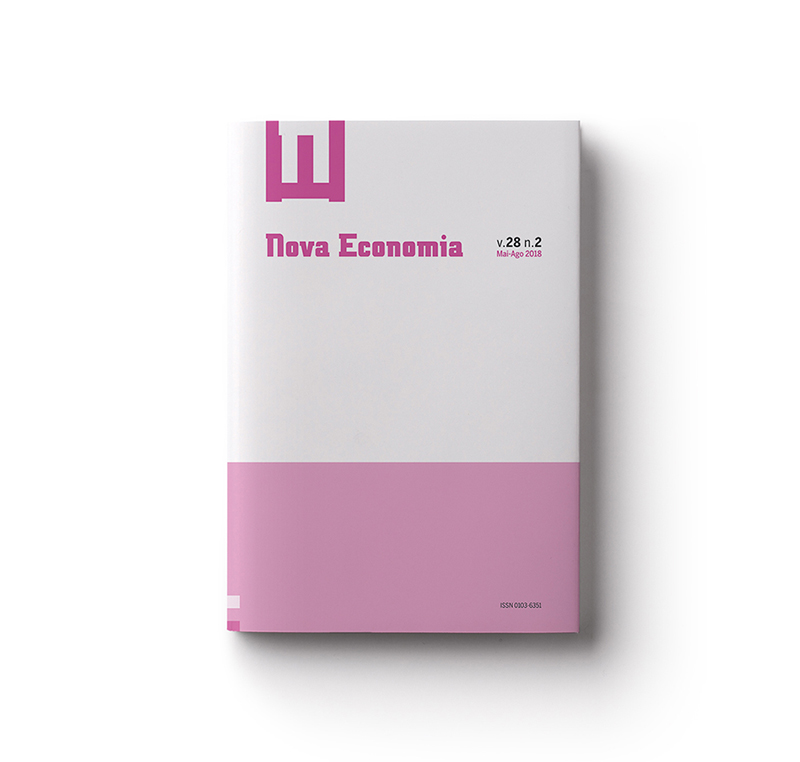Incorporando o risco soberano no desenho operacional do regime de metas de inflação
Resumo
O objetivo deste artigo é analisar os mecanismos de coordenação entre políticas monetária e fiscal, em uma economia com regime monetário do tipo metas de inflação, que permitam acomodar choques exógenos e manter tal economia em um equilíbrio estável em um ambiente em que o risco de default contribui para a instabilidade da dívida e da taxa de juros de política monetária. É desenvolvida uma estrutura analítica no intuito de capturar os mecanismos de transmissão do risco soberano e seus efeitos na definição de funções-reações para a autoridade monetária e fiscal. Para isso, utilizou-se um modelo de equações diferenciais simultâneas de primeira ordem em que se analisou o equilíbrio intertemporal do modelo e sua estabilidade. Os principais resultados mostram que na hipótese de regras fiscais, com a imposição de um superávit primário, a autoridade monetária deve apresentar um peso maior dos desvios da inflação em relação à meta de inflação, de modo que um controle fiscal é desejado para que a economia não seja muito vulnerável a choques de risco soberano. Em uma configuração em que não há regra fiscal, é necessário que a autoridade monetária acomode os choques do risco soberano com aumentos na taxa básica de juros.
Downloads
Publicado
Como Citar
Edição
Seção
Licença
Autore[a]s que publicam nesta revista concordam com os seguintes termos:
- Autore[a]s mantém os direitos autorais e concedem à revista o direito de primeira publicação, com o trabalho simultaneamente licenciado sob a Licença Creative Commons Atribuição 4.0 Internacional que permite o compartilhamento do trabalho com reconhecimento da autoria e publicação inicial nesta revista.
- Autore[a]s têm autorização para assumir contratos adicionais separadamente, para distribuição não-exclusiva da versão do trabalho publicada nesta revista (ex.: publicar em repositório institucional ou como capítulo de livro), com reconhecimento de autoria e publicação inicial nesta revista.
- Autores têm permissão e são estimulados a publicar e distribuir seu trabalho online (ex.: em repositórios institucionais ou na sua página pessoal) a qualquer ponto antes ou durante o processo editorial, já que isso pode gerar alterações produtivas, bem como aumentar o impacto e a citação do trabalho publicado (Veja O Efeito do Acesso Livre).




